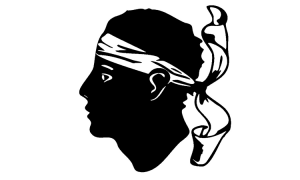Language/Corsican/Grammar/Plurals
Hi Corsican learners! 😊
In this lesson, we will learn about plurals in the Corsican language.
Introduction[edit | edit source]
In Corsican, plurals are formed in various ways depending on the gender and final consonants of the noun. Understanding plural formations can be complex, but it's an essential aspect of learning the language. In this lesson, we will break it down to make it easier.
Take some time to dive into these other pages after completing this lesson: Negation, Pronouns & How to Use Have.
Plural endings[edit | edit source]
Plurals are formed according to the final consonant of the noun in Corsican. There are three different endings for plural nouns:
Plural in -i[edit | edit source]
Nouns ending with a vowel will add the suffix -i. Here are some examples:
| Corsican | Pronunciation | English | ||||||
|---|---|---|---|---|---|---|---|---|
| chjuculu | /kyku'ly / | cherries | signura | /siɲu'ra / | ladies | capuccinu | /kaput'tʃinu/ | cappuccinos |
Plural in -a[edit | edit source]
Nouns ending with -u, -e or -o will have their final vowel changed to -a. Here are some examples:
| Corsican | Pronunciation | English | ||||||
|---|---|---|---|---|---|---|---|---|
| portu | /'pɔrta/ | ports | telefonu | /tele'fonu/ | telephones | pane | /'pane/ | bread |
Plural in -i/-a/-i/-e[edit | edit source]
Nouns ending with a consonant (excluding -r) will add the suffix -i/-a/-i/-e. This ending has a strong connection to Italian plural formations.
| Corsican | Pronunciation | English | ||||||
|---|---|---|---|---|---|---|---|---|
| oliu | /'olju/ | oils | latte | /'latte/ | milk | cumprera | /kum'prera/ | buyers |
Plural in -s[edit | edit source]
Nouns ending with -r, -l or -n will add -s. This ending is common in French plural forms but also used by Corsicans. Here are some examples:
| Corsican | Pronunciation | English | ||||||
|---|---|---|---|---|---|---|---|---|
| chjama | /'kjama/ | rooms | candelu | /kan'dɛlu/ | candles | pistaciu | /pi'statsju/ | pistachios |
Dialogue[edit | edit source]
- Person 1: Un buecu di formaiu, per piacè. (A piece of cheese, please.) - Person 2: Eccu, duie formaii per u signore. (Here are two cheeses for the gentleman.) - Person 1: Grazie, li cavaru à u supermercatu vicinu. (Thank you, I got them at the nearby supermarket.)
Exceptions[edit | edit source]
There are some nouns that do not follow the general rule of plural formation in Corsican. Here are some examples:
| Corsican | Pronunciation | English | ||||||
|---|---|---|---|---|---|---|---|---|
| ghjenti | /'dʒenti/ | people | fratelli | /fra'tɛl:ɪ / | brothers | peccerelle | /peʧɛ'rɛllɛ/ | prawns |
Practice[edit | edit source]
Let's practice plurals with the following words:
- tesori (treasures) - sapone (soaps) - pirulete (lollipops) - burriche (butterflies) - spagnolu (Spanish)
Conclusion[edit | edit source]
In this lesson, we have learned about the different ways to form plurals in Corsican. Remember that practice is key to mastering plurals. To improve your Corsican Grammar, you can also use the Polyglot Club website. Find native speakers and ask them any questions!
Sources[edit | edit source]
Upon wrapping up this lesson, take a look at these related pages: Say Hello and Greetings in Corsican, Future Tense & Adjectives.
Other Lessons[edit | edit source]
- Adjectives
- Give your Opinion
- Negation
- How to Use Be
- Questions
- How to Use Have
- Conditional Mood
- Personal pronouns
- Future Tense

